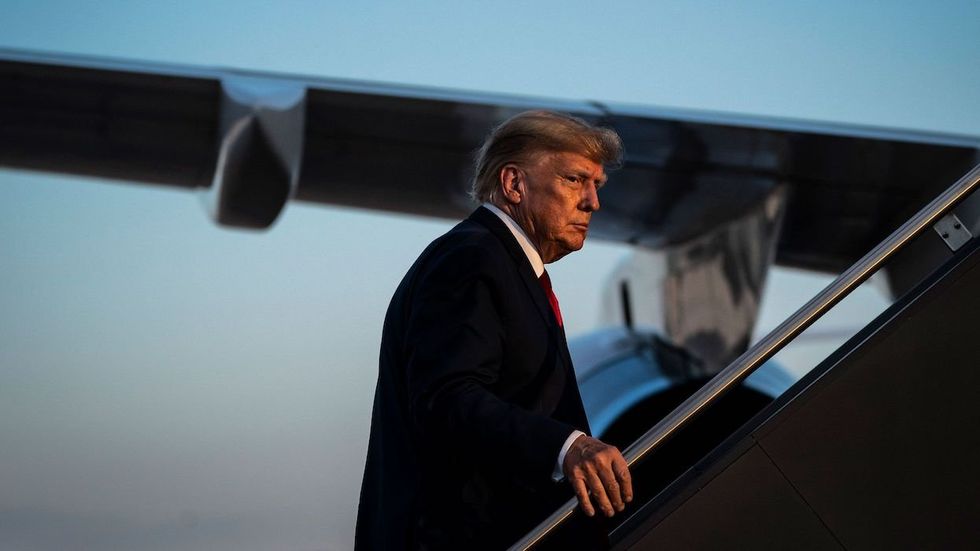All Rights reserved
By continuing to use our site, you agree to our Private Policy and Terms of Use.
By Lauren del Valle, Kara Scannell and Jeremy Herb
New York (CNN) — A New York judge has set a trial date of March 25, 2024, for the criminal case against former President Donald Trump, potentially setting up a media spectacle in the middle of the Republican presidential primary season.
The trial date was set during a brief hearing Tuesday in which Judge Juan Merchan read Trump an order on what he can and cannot say publicly about the case and evidence his legal team will get from prosecutors to prepare for trial.
Trump appeared remotely via video feed so the judge could communicate with him in open court.
Trump pleaded not guilty last month to 34 felony counts of falsifying business records with the intent to conceal illegal conduct connected to his 2016 presidential campaign. The criminal charges stem from District Attorney Alvin Bragg’s investigation into hush money payments, made during the 2016 campaign, to adult film star Stormy Daniels who alleged an affair with Trump, which he denies.
During the hearing, Trump could be seen speaking and gesturing to his attorney Todd Blanche seated next to him on the screen but his audio was not audible. At times he sat back with his arms crossed. The former president only spoke to confirm he had a copy of the protective order for the case. “Yes, I do,” he said.
Trump’s attorney said that the former president remains concerned that the order infringes on his First Amendment rights.
“He understands that he has to comply with the order, and if he doesn’t do so, he’s violating your order,” Blanche said during the hearing.
Merchan reiterated that there is not a gag order in place and Trump can publicly defend himself against the allegations related to this case.
“It is certainly not my intention in any way to impede Mr. Trump’s ability to campaign for president of the United States,” the judge said.
“He is free to defend himself against these charges. He is free to campaign,” Merchan added. “He is free to do just about anything that does not violate the specific terms of the protective order.”
The judge cautioned the attorneys that Trump’s violation of the order could result in sanctions.
“Violation of a court order or court mandate could result in sanctions which include a finding of contempt which is punishable,” Merchan said.
Trial and briefing schedule set
Earlier this month, Merchan signed off on a protective order, which in part said that the case evidence prosecutors give Trump’s defense team may not be shared or posted to “any news or social media platforms, including, but not limited, to Truth Social, Facebook, Instagram, WhatsApp, Twitter, Snapchat, or YouTube, without prior approval from the Court.”
Trump can only view some evidence designated by prosecutors as “limited dissemination materials” in the presence of his attorneys and cannot “copy, photograph, transcribe, or otherwise independently possess” that evidence, per the order.
Prosecutors turned over discovery material to Trump’s lawyers in court during the hearing Tuesday. Scheduling deadlines in the case have been pushed back to give the defense more time to review the materials.
Prosecutors declined to produce material to the defense before the hearing Tuesday – requesting that the former president be instructed by the judge about the protective order that governs his conduct surrounding case evidence.
Defense motions are now due by August 29 and prosecutors must respond by October 10.
The next hearing is now scheduled for January 4, 2024.
The former president has repeatedly made negative public comments and social media posts about the district attorney, potential trial witnesses and the judge in this case. Prosecutors cited some of Trump’s Truth Social posts in their request for a protective order.
Trump and his legal team can still talk about the case publicly because there is no gag order in effect. The protective order as it stands specifically restricts their public discussion and dissemination of case material given to the defense during the discovery process.
Motion to move to federal court
Trump’s lawyers have filed a motion to move the criminal case to federal court in Manhattan, arguing the crimes Trump is accused of committing are tied to his duties as president.
The defense request to move the case to federal court does not pause the state court’s ongoing schedule. A hearing in federal court on that motion is scheduled for next month.
This story has been updated with additional developments.
The-CNN-Wire
™ & © 2023 Cable News Network, Inc., a Warner Bros. Discovery Company. All rights reserved.














































































